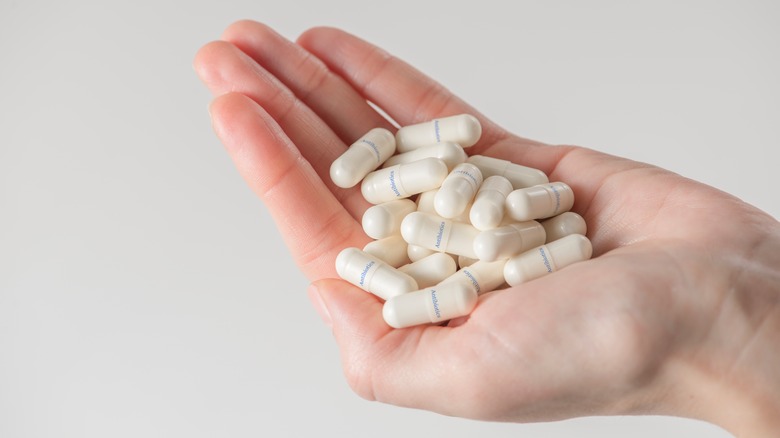Is It Safe To Take Antibiotics To Treat Acne?
Acne is a skin condition characterized by clogged hair follicles filled with oil, dead skin cells, and bacteria. It typically appears as blackheads, pimples, and whiteheads and can occur on several parts of the body. According to a 2022 study published in the British Journal of Dermatology, acne affects 9.4% of the world population. The condition can be caused by a variety of factors, including hormonal changes, genetics, stress, diet, and certain medications, says the Mayo Clinic.
Acne can range in severity from mild to severe and can significantly impact a person's self-esteem and quality of life. Various treatment options exist for the condition, and many wonder if it is safe to take antibiotics to treat acne. Antibiotics work by either killing bacteria or preventing them from reproducing and spreading further in the body, explains the National Health Service (NHS). If you're considering using antibiotics to treat acne, it is important to consider the potential risks and use them only when necessary. Luckily, your dermatologist can help you determine the best treatment for your individual needs.
The safety of taking antibiotics to treat acne
Antibiotics are sometimes prescribed for acne to reduce inflammation and kill the bacteria that can cause breakouts. According to the Mayo Clinic, common antibiotics for acne include a macrolide, like azithromycin, or a tetracycline, such as doxycycline. Although a common treatment, the use of antibiotics for acne treatment has come under scrutiny due to the risk of developing antibiotic resistance. As explained by the American Academy of Dermatology Association, when bacteria is exposed to antibiotics over time, they can evolve and become resistant to the drugs, making it harder to treat infections in the future. In addition, long-term use of antibiotics can disrupt the balance of bacteria in the gut and increase the risk of other infections (via a 2020 study published in the journal Frontiers in Cellular and Infection Microbiology).
In some cases, antibiotics may be a necessary and effective treatment for severe acne. However, your dermatologist might suggest other treatments before resorting to antibiotics. When prescribed antibiotics for acne, it is important to follow your doctor's instructions carefully to reduce the risk of developing antibiotic resistance. In other words, take the medication exactly as directed and ask about the potential side effects.
What are the other treatment options for acne?
The treatment for acne may depend on the severity of the condition, the type of acne, and your age. Treatment may also involve a combination of different approaches and must be adjusted over time as your skin responds to the treatment. With proper treatment, many cases of acne are effectively managed and cleared up over time. Common treatment options include over-the-counter topical medications, such as benzoyl peroxide and salicylic acid, says the Mayo Clinic.
For more moderate cases, prescription-strength topical medications, such as retinoids may be used. Isotretinoin, also known as Accutane, is a prescription medication used to treat severe acne. It is a powerful medication with potential side effects and is typically reserved for cases that have not responded to other treatments. At times, making certain lifestyle changes, such as adopting a healthy diet and reducing stress, may help improve acne.



